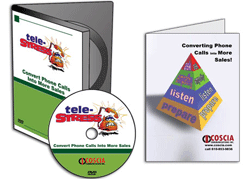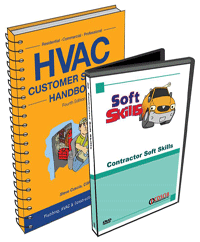Email remains one of the most potent ways for HVAC contractors to communicate with their customers. However, getting these electronic messages to consumers grows more challenging all the time. Concerns over privacy and cybersecurity increased this year, causing email service providers (ESPs) to make filters stricter.
This means many emails from HVAC contractors, ranging from appointment reminders to promotions, are getting sent to a spam or junk folder. Getting through these filters requires following best practices about messages and volume.
Ben Landers, CEO of Blue Corona, knows firsthand how companies and consumers are placing a high priority on cybersecurity, especially with so many employees working off-site due to the coronavirus pandemic. Lander’s marketing firm recently started flagging all external emails with a red tag. He said employees were receiving too much spam with messages such as one claiming to be him, saying he lost the employee’s cell phone number.
Landers said most emails from HVAC contractors fall into three categories: transactions (such as invoices), reminders, and marketing material. Most problems arise from the last category. After all, consumers want the first two.
Understanding how communication from HVAC contractors gets impacted by spam filters impact requires understanding how computers view email. A person sees an email address as a string of characters, such as info@soandsohvac.com. A computer views that email as a string of numbers called an IP address.
Problematic emails pollute that IP address, Landers said. If an HVAC contractor uses the same IP address for all types of emails, that means none get through. This includes the invoices along with promotions around new IAQ products.
Landers recommends creating separate IP addresses for different types of emails. So the IAQ announcement may come from promos@soandsohavc.com, while the invoice comes from billing@soandsohvac.com. This avoids issues that slow payments and upset customers.
There are times when an HVAC contractor’s own ESP blocks interfere with a marketing campaign. Landers has heard of situations when an HVAC contractor will complain a campaign failed to generate any leads, only to find out the responses weren’t getting through to his email.

SPAM SPAM SPAM: Email remains one of the best ways to keep in contact with customers, but staying out of spam filters requires following best practices.
Too many emails all at once are a common cause of spam filter issues, Landers said. For example, an HVAC contractor may obtain an email list of new homeowners from a local real estate agent. The HVAC contractor then sends a promotional email to all these customers at the same time. A common warning sign that an email has been hacked is a sudden uptick in volume coming from that address. So an ESP could flag that address as spam.
The solution is sending small batches when conducting a promotional campaign. If that list includes 10,000 addresses, send a few thousand at a time over several weeks. Landers said it’s crucial to pace emails this way to avoid the spam label.
The wording of emails plays another key role. Email subject lines that use urgent language, capitalizations and symbols often get the emails flagger as spam. For example, “Get 20% off, ACT NOW!!” is likely to get trapped in a spam filter. Another bad practice is placing an entire pitch in the subject line.
“We all want to get attention for our email blast, and it’s tempting to use eye-catching symbols or bold language,” said Elania Burdick, a consultant with EB&L Marketing. “The problem is the email service providers (ESPs) can easily pick up on these tactics.“
Landers said it’s fairly easy to know what causes problems. An HVAC contractor shouldn’t send out an email he or she wouldn’t want to receive.
“Just take the spammiest, cheesiest emails you get and go in the other direction,” Landers said.
Don’t try to game the system, Burdick said. A short, personalized message provides a better approach. "Charlie, it’s time for your furnace service" is a great way to get attention without getting flagged as spam.
“Use the recipient's name in the email title,” Burdick said. “Most of the popular email services have this feature available, and for a good reason.”
Being able to do that does mean continuously updating an HVAC contractor’s database, she said. Contractors need to use care when tapping those databases, Landers said. Sometimes a marketing firm will pull out all the contacts for a campaign, even if consumers opted out of receiving promotional emails. This means someone who contacted a firm only to get a quote is now being sent unwanted emails. If enough of those get marked as a spam, it creates a problem.
Burdick said getting permission before hitting send remains rule No. 1 for email marketing. HVAC contractors need that opt-in form on their websites that clearly informs visitors that they will be receiving emails in the future. It’s also a good idea to ask existing customers to add an HVAC contractor to their contact lists.
Keeping in touch with customers plays a key role in avoiding spam filters. If an HVAC contractor notices a customer isn’t opening any of his emails, a verification email should go out to see if that customer wants to stop receiving them. Otherwise, the consumer may choose to just mark the emails as spam.
Finally, as in school, spelling and grammar count. Bad actors who send spam emails often make writing mistakes, sometimes on purpose. Burdick said this adds even more importance to proofreading emails before they are sent.
Proper spelling and grammar also indicate the professionalism of an HVAC firm. Ultimately, email is another aspect of an HVAC contractor’s reputation. Landers said it’s a good idea to use online tools to make sure the reputation of the email addresses matches that of the overall company. It only takes a few mis-sent emails to tarnish that reputation.
“Just like a reputation in the real world, you spend years building it and you can wreck it very quickly,” Landers said.
Here are a few examples of words and phrases Elaina Burdick recommends HVAC contractors avoid in their email subject lines:
- “risk-free”
- “bonus”
- “supplies are limited”
- “order now”
- “dear friend”
- “prize”
- “congratulations”
- And her personal favorite: “this is not spam!”










